 One tree
One tree One life

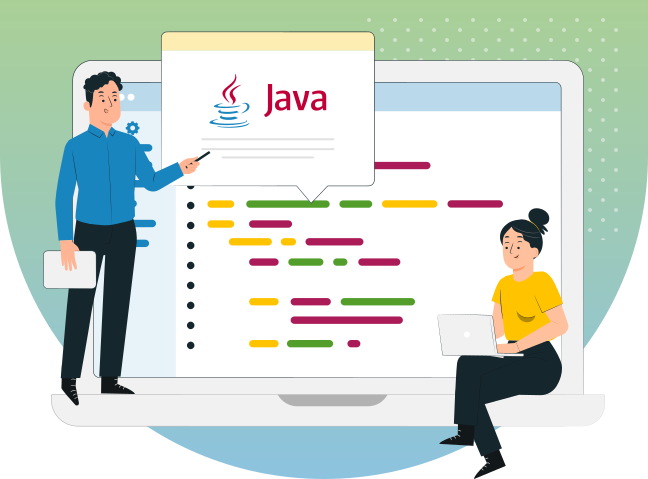
We develop high-quality and secure Java applications for diverse domains and enterprises leveraging Java’s modern capabilities and suitability. Java, a most resilient, evolved, and years-old programming language is a top choice of enterprises worldwide for digital transformation. Java’s myriad advantages over other languages and environments make it the preferred language for any application or task.
With 36+ years of market existence, our experience and expertise as a Java web development company helps businesses of all sizes to enrich their digital presence, digitize operations, and utilize technologies to increase business growth.
Java is known for its stability, performance, versatility, and ease. Using the modern Java stack and robust architecture, our team of experienced Java developers creates feature-rich Java web applications and mobile solutions. Whether you want custom java applications or want to modernize existing applications, our Java application development services offer full-cycle development starting from UI/UX design, development, deployment, testing, and maintenance.

Being a top Java software development company, our Java integration services cover all your needs whether you want to integrate your existing Java apps with new capabilities, implement efficient data routing, or enable interactivity between multiple applications through APIs. We integrate your Java application with various third-party tools and platforms to enhance the functionality of Java web applications.
Migrate your legacy systems to modern Java platforms and increase operational efficiency with our migration services. We have an in-depth understanding of enterprise Java apps and legacy apps that help us successfully carry out the migration process without much disruption in the current environment. We ensure a low-risk approach to migration without losing your data and seamlessly migrate everything to the improved system.
We create secure, futuristic, and customized mobile apps using Java for various domains and devices. Our mobile app development services are tailored to your business needs and deliver multi-layered, secure apps for your enterprise. Java for Android development is an ideal choice as it is equipped with features like platform-independent, portable, secure, and robust. We develop cross-platform mobile apps leveraging the Java tech stack that help you achieve a competitive edge in the market.

Our rich technology and domain experience enable our team to handle the most complex projects and deliver tailor-made solutions for your business. With a vast experience in multiple Java frameworks and platforms, we deliver custom Java applications that align with your business objectives. Our Java developers have crafted varied software solutions right from content management systems, ERP, and engaging mobile apps, to data analytics solutions.

We create cloud-native Java applications to help you achieve flexibility, scalability, and cost-effectiveness. Using microservices or serverless architecture, we develop apps for the public or private cloud based on your choice. We deliver cloud-based SaaS, and PaaS Java applications and deploy them on the platform of your choice. We ensure seamless migration of your existing applications to a cloud-native environment to obtain enterprise-level security, availability, and high performance.

Our team walks the extra mile to take every challenge and solve issues quickly, ensuring that your application is up and running smoothly. We offer post-release support and maintenance for your Java applications and constantly monitor the system for security, performance, and quality. In case of bugs and issues, we fine-tune your applications in no time with our dedicated support team that cares about the stability and quality of your applications.

Java development is an ideal choice for enterprise solutions as it is a widely used, stable, and evolving language. We have provided our Java app development services to well-known brands using the right blend of design thinking, innovative approach, and proven development methodologies. Our global clientele includes Fortune 100 companies, SMEs, startups, and large enterprises, making us a trustworthy technology partner for wide-ranging enterprise Java development services.
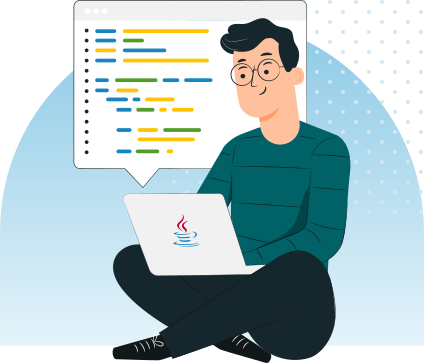
Leverage our experience in Java development services to build scalable, reliable, secure, and cross-platform web and mobile applications for diverse domains.

Apache Maven is a famous build automation tool widely used for Java project management. Many Java developers use Maven to make the build process easy by leveraging a unified build system. For any Java-based project, Maven is the go-to tool for understanding the complete state of development and managing the project in a hassle-free manner.

Our experienced Java developers make the best use of advanced tools to build, test, and deploy Java applications. Jenkins is an open-source automation server, facilitating continuous integration and continuous delivery (CI/CD) pipeline. It helps developers automate major activities of SDLC such as building, testing, and deploying to accelerate the speed of development.

Gradle is a popular build automation tool used by Java developers to automate tasks and increase productivity. It helps teams build, automate, and deliver software faster. It supports multi-language software development and improves build speed whether you are building mobile apps, microservices, apps for startups, or large-scale enterprises.
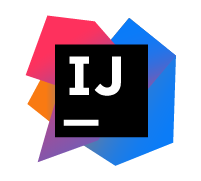
IntelliJ IDEA is an integrated development environment for Java. It is a top-choice IDE widely used by Java developers to develop enterprise and full-stack Java applications faster and better. With powerful features and support for new technologies, IntelliJ IDEA makes development cost-effective, quality-driven, and at the same time enjoyable and productive.

Apache NetBeans is a leading and well-liked IDE in the Java community offering a development environment, tooling platform, and application framework. It boasts many out-of-the-box features and supports the development of all Java application types such as Java SE, Java ME, web, EJB, and mobile. It contains all the modules needed for full-cycle Java development and runs on multiple platforms.

Eclipse is the most popular integrated development environment for Java application development. It has an extensible plug-in system for a customized environment and provides a community of developers with a scalable, mature, and developer-friendly environment for collaboration and the creation of software. It offers a rich client platform, server platform, modeling platform, and web tools platform.

Service-oriented architecture is one type of architectural style that focuses on distributed systems that communicate with each other across different languages and platforms. SOA is the preferred architectural style for massive applications that heavily use third-party components. It is based on the loose coupling concept and uses an enterprise service bus (ESB) to communicate between services.

Microservices - a variant of the SOA is a popular architectural style for software development where an application is made of small, independent, loosely-coupled services. It makes applications easier to build and scale, helping organizations to adapt to the changes faster and accelerate time-to-market for an app. Microservices are a crucial part of the modern software development environment.

A serverless architecture is a design approach to software development where a cloud provider offers on-demand resources to run applications, storage systems, and databases. Serverless frees developers from managing infrastructure, and instead, all computing resources are managed by cloud providers such as Amazon, Microsoft, and Google.

Azure, a cloud computing service from Microsoft helps organizations save costs, and build secure, future-ready cloud solutions. Microsoft Azure offers a range of products and services to set up a cloud environment and modernize applications with advanced capabilities to manage data, infrastructure, and workloads.
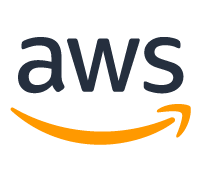
We work with leading and widely-used cloud computing services that power a large number of businesses across the world. AWS offers a highly reliable, scalable, and low-cost infrastructure through various models and on-demand cloud computing platforms based on a pay-as-you-go pricing structure.

Google Cloud Platform offers reliable, high-performance, and scalable infrastructure to build, deploy, and scale apps, websites, and services. GCP is a popular cloud service provider providing flexible infrastructure, scalability, security, powerful analytics, and easy deployment to modernize and transform businesses.
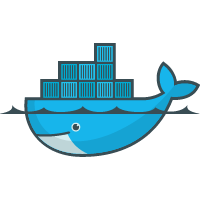
Docker is a software platform that allows developers to build, test, and deploy applications with containerization. Docker packages software into units that have the necessary libraries, tools, and code to run the software. It is a very popular modern concept and widely used tool by developers to accelerate software development and deployment.
Kubernetes is an open-source container orchestration platform for automating the deployment, scaling, and management of containerized applications. It manages the availability of many physical and virtual hosts that manage a large number of containerized applications. It automates many manual processes of deploying, managing, and scaling applications.
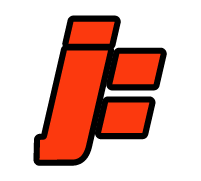
Jetty is a highly scalable Java web server and servlet engine offering support for web protocols like HTTP, HTTP/2, and WebSocket. It is a modern, fully async web server used in a wide variety of projects and products. A jetty server can be embedded in devices, platforms, application frameworks, servers, and tools or operated as a standalone server.

Apache Tomcat is an open-source implementation of Java Servlet, JavaServer Pages, Java Expression Language, and WebSocket technologies. It powers many large-scale, high-volume, and mission-critical web applications across different industries and enterprises. It is widely used by well-known brands and provides them with a pure Java HTTP web server environment.

WildFly, formerly known as JBoss, is a powerful application server written in Java. It is a popular choice for users and enterprises to develop large-scale applications. WildFly is an easy-to-setup, lightweight, and modular server. It offers important tools and rich enterprise capabilities that make development faster and more efficient.
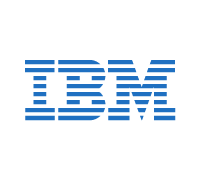
For Java apps, IBM WebSphere is the most advanced application server from IBM. It hosts Java-based web applications and optimizes applications for any environment. Many large-scale organizations are relied on the WebSphere application server for maintaining a scalable server environment. It is widely used to host cloud applications as well as microservices as per business needs.
Oracle OC4J is Oracle Containers for Java EE. It offers an advanced container for developing, deploying, and managing Java EE applications. It is a slimmed-down version of the Oracle Application Server. Oracle OC4J provides a complete j2EE compliant environment with all the containers, APIs, and services to run J2EE applications.

Apache Kafka is an open-source stream-processing and event store platform used by a large number of companies to manage data pipelines and streaming analytics. In a nutshell, it is a unified platform to handle real-time data feeds and process streams of records in real-time. Apache Kafka is a kind of message broker solution that acts as a mediator between two applications for data exchange.

RabbitMQ is the most deployed open-source message broker with a huge user base. It is powerful, lightweight, and easy to deploy in the cloud or on-premises. It is widely used by large-scale enterprises, startups, and small businesses for cloud messaging. It supports multiple messaging protocols to provide high availability and security in messaging.

Elasticsearch is a distributed, open-source, and full-text search engine. It is built on Apache Lucene and it is one of the most popular search engines used for analytics, business intelligence, security intelligence, and full-text search. It offers support for various languages with rich integration and tooling to build a variety of applications.

Datadog is the monitoring platform for cloud applications. Through a SaaS-based data analytics platform, it offers monitoring of servers, tools, databases, and services. Using Datadog, teams can oversee performance metrics as well as monitor cloud services and infrastructure. Gather real-time insights about your IT infrastructure and monitor important metrics using Datadog.

Splunk is the popular data platform for enterprise observability and security provisions. It uses machine data to identify data patterns, important metrics, and issues. It offers a comprehensive platform that helps organizations identify security risks, and opportunities for optimization, and monitor real-time data to make informed decisions.

Apache Spark is an open-source unified analytics engine for performing data engineering, data science, and data analytics tasks at scale. It is widely used by well-known companies to manage real-time streaming, execute queries, program machine learning algorithms with fault tolerance and data parallelism, and perform Exploratory Data Analysis (EDA).
A large number of companies in almost every industry rely on Java for its stability, versatility, flexibility, and security. Java’s huge ecosystem of frameworks, libraries, tools, and its largest community make Java an ideal choice for developing scalable, secure, and feature-rich modern applications.
Vaadin is a popular web application development platform for Java. This open-source framework lets Java developers build modern web UI using the Java or TypeScript language instead of HTML and JavaScript. It is used by Fortune 100 organizations and a large number of developers to build modern enterprise apps. Vaadin’s flexible development model and design system help developers create a better user experience that increases engagement and customer satisfaction.
Our team of skilled Java developers builds maintainable, scalable, and secure web applications using Struts. Apache Struts is a modern Java framework that uses MVC architecture for building enterprise-scale, feature-rich applications. It works with major Java technologies such as JavaBeans, Java Servlets, XML, and many more. Apache Struts is an open-source MVC (Model, View, Controller) framework for creating elegant, advanced Java web applications.
Hibernate ORM is an object-relational mapping tool for Java. It is a high-performance object-relational mapper and query service for relational databases. Java programmers significantly use Hibernate for data management, freeing them from manual handling of data and saving their time. Hibernate simplifies code structure and maintains object-table mapping itself, eliminating database dependency and complexity. It is designed to overcome challenges faced in the JDBC.
Spring is the most common and widely used Java framework with a flexible and comprehensive set of tools and libraries that let developers build any type of application. Spring Boot, Spring MVC, and Spring Framework are heavily used when it comes to Java application development. Spring has a lot of tools and libraries that help Java developers build applications quicker, easier, and safer. Spring’s global, wide, and diverse community includes a large number of resources and support from tech giants across the world.
GWT stands for Google Web Toolkit and is an open-source set of tools used by many products at Google and developers worldwide. It is primarily used for creating and maintaining UI in Java. It makes AJAX application development easier and allows developers to create JavaScript front-end applications using the selected Java development tool. It is developed and maintained by Google and mainly focuses on optimizing complex browser-based applications.
Play is a high-productivity, lightweight, and MVC application framework for JVM-based programming languages. It is widely used by Java developers to build reliable and scalable web apps and increase developer productivity by offering hot code reloading and convention over the configuration paradigm. The play offers developer-friendly architecture and built-in testing support, making it an ideal choice for modern web and mobile app development.
Hire Java developers to build comprehensive, full-cycle, and scalable Java solutions that meet ever-changing business demands and prepare your business for what’s next.
Hire Top Talent
Discover the diverse range of industries we proudly support with our innovative software solutions to companies of different business verticals. Our expertise spans multiple sectors, ensuring tailored services for every unique need.
Java is a great choice for developing different types of modern applications. Java has a huge ecosystem of tools, libraries, IDEs, and frameworks. Java’s write once, runs anywhere principle makes it a suitable option for cross-platform, game consoles, data centers, IoT, machine learning, mobile, and cloud applications.
Java has significant advantages over other languages that make it a top choice for developing any type of application. Advantages of Java are:
Java is one of the world’s most popular programming languages widely used in major fields such as finance, healthcare, big data applications, retail, enterprise applications, mobile apps, cloud, IoT apps, scientific use cases, gaming apps, web, and many more. Java is primarily used to develop server-side development, distributed applications, and cloud-based applications.
With our extensive portfolio having Fortune 100 companies as our clients showcase our expertise to build diverse apps and solutions as per your requirements. We have 36+ years of experience in building next-gen software solutions that help us deliver better for every client be it a startup, small & medium businesses, or large-scale enterprise.
Yes, we do offer post-deployment SLA-driven support. Under our maintenance and support service, we offer post-launch support that includes bug-fixing, enhancements, upgrades, performance issues, and minor changes.
We offer a dedicated development team, fixed cost model, and time and material model for hiring developers. Our dedicated Java developers are available to work hourly, part-time, and full-time as per your requirements.
A full-stack Java developer is a programmer who works on the front-end and back-end of an application using the Java technology stack. Java is used for server-side development but a full stack developer must have skills in front-end, back-end, and databases. Generally, a full-stack developer must become proficient in at least one technology stack to create an end-to-end application.
Mastering Java gives you many benefits as it is one of the foundational languages in android apps, desktop apps, and web apps. Java has many frameworks and libraries that make it an ideal choice for a full stack. Combining it with JavaScript, developers can leverage the Java stack to develop amazing, feature-rich, and dynamic web apps.
“SPEC House”, Parth Complex, Near Swastik Cross Roads, Navarangpura, Ahmedabad 380009, INDIA.
“SPEC Partner”, 350 Grove Street, Bridgewater, NJ 08807, United States.
This website uses cookies to ensure you get the best experience on our website. Learn more